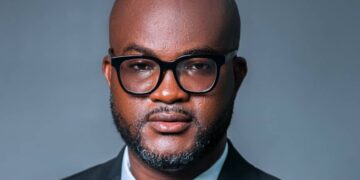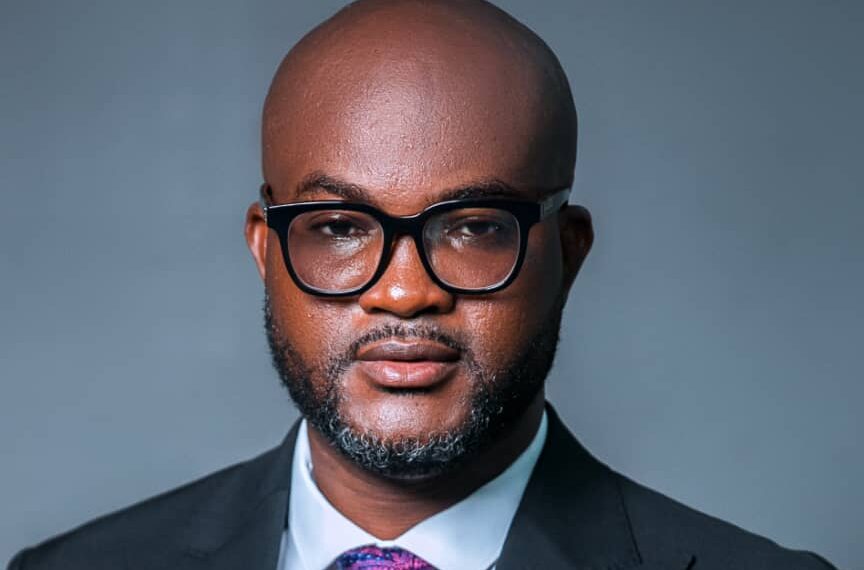When Dzifa Gunu was appointed CEO of Ghana Digital Centres Limited by President Mahama in 2025, he knew he wasn’t just taking on a job. He was accepting a mission that would determine whether Ghana becomes a digital powerhouse or remains a cautious observer in Africa’s tech revolution.
“For years, we debated whether technology was ‘juju’ or the devil’s work while other nations-built industries,” Dzifa reflects candidly. “We became consumers, not creators. My job is to change that narrative completely.”
It’s a transformation that starts with confronting fear head-on. At the Ghana Robotics Competition 2025, standing before a room full of young innovators, Dzifa delivered a message that captured his entire philosophy: “Knowledge destroys fear. Understanding replaces superstition. Education turns mystery into mastery.”
That moment, he says, showed him everything he needed to know about Ghana’s potential. “The future is in this room. And the future is bright.”
There’s more to this CEO than meets the eye. Behind his professional polish lies a psychology background that shapes everything he does at Ghana Digital Centres Limited. “My background in psychology has always shaped how I connect with people,” he shares. “You can’t drive digital transformation if you don’t understand what makes people tick, what they fear, what motivates them.”
His educational journey, spanning communications studies at the Ghana Institute for Journalism, degrees in Public Relations, and specialized training in business and human resource development, gave him the tools. But it’s his understanding of human behaviour that’s proving invaluable as he works to shift an entire nation’s relationship with technology.
“Being behind is not the same as being unable,” he often tells the young people who walk through the digital centres’ doors. “Ghana may be late to the tech revolution, but we’re not incapable. We have the talent, the hunger, and the potential.”
Dzifa’s professional journey shows his versatility. Over more than a decade, he’s moved through media and entertainment, brand communications, and business development across multiple sectors. He started in marketing, managing distribution networks across Ghana, The Gambia, and Nigeria, securing clients for seminars, and building relationships that would later prove invaluable.
He worked in PR and digital marketing consultancy, developing strategic communication initiatives for startups and established companies. He managed operations at the Institute for Policy & Strategy Development, designed training programmes, and handled accounts for major organizations like the Ghana Investment Promotion Centre.
“Everything I’ve done has prepared me for this moment,” he says simply. “You learn something everywhere. How to tell a compelling story. How to build systems that work. How to connect with people. It all matters when you’re trying to transform an entire ecosystem.”
When he arrived at Ghana Digital Centres Limited, he knew the foundation needed work. “You can’t drive innovation with outdated systems,” he observes. Under his leadership, GDCL has undergone comprehensive restructuring, optimizing operations, governance, and efficiency to align with the Ministry of Communications’ strategic objectives.
Walk into any of Ghana’s digital centres today, and you’ll see the results of Dzifa’s vision taking shape. The centres are buzzing with activity: over 10,000 young people trained, contributing to more than 3,000 jobs created, supporting over 500 startups, maintaining a 60% occupancy rate with more than 60 tech companies hosted.
“These numbers tell a story,” Dzifa says, “but they’re not just my achievement. They represent an entire team working together. Every young person who learns to code, every startup that finds its footing, every job created, that’s the real victory.”
His approach is refreshingly hands-on. Under his leadership, GDCL has launched intensive digital marketing training programmes empowering professionals and entrepreneurs with essential skills. Two-month full stack development courses foster practical software development capabilities. Strategic partnerships, including one with Teleperformance, expand opportunities for young Ghanaians.
“We’re not just teaching theory,” he emphasizes. “When someone completes our programme, they should be able to build something, solve a problem, create value. That’s what matters.”
Ask Dzifa about his biggest goal, and his answer is immediate: operationalizing digital centres across all regions in Ghana. It’s central to his vision for the One Million Coders Agenda, a bold initiative to create an army of problem-solvers who can build Ghana’s digital future.
“Technology is not separate from development. Technology IS development,” he states firmly, echoing a theme from his speeches. “Every nation that has transformed in the past 50 years did so by embracing technology as a core development strategy. Ghana needs to do the same.”
But there’s something even more personal driving him. “My greatest achievement,” he confides, “would be to see five startups that we incubated from the beginning become truly successful companies. Not just surviving, but thriving. Creating jobs. Solving problems. Making Ghana proud.”
It’s this human-centered approach that sets him apart. “Africa has the youngest population in the world. We have the problems. We have the young minds. What we need is the knowledge and the tools,” he tells anyone who’ll listen. “When youth use AI to solve sustainability challenges, when they build robots and write code, every single innovation is a declaration that Ghana is ready, that Africa is rising.”
One of his proudest moments came in 2025 when he led Team Ghana to the prestigious AI for Good Competition in Geneva. “Successfully representing Ghana at that level, showing what we’re capable of, that’s what it’s all about,” he says with evident pride. “We’re proving that Ghana belongs in the global conversation about technology and innovation.”
It’s this kind of visibility that Dzifa believes is crucial. “We’re not running from technology. We’re running towards it,” he declares, articulating the mindset shift he’s championing across the nation.
Beyond the digital centres, Dzifa is deeply engaged in Ghana’s political scape as a celebrated member of the National Democratic Congress ( NDC). An astute political commentator and communicator, he’s not shy about correcting misinformation on social media or advocating for policies that advance digital transformation.
“Politics and technology aren’t separate,” he explains. “If we want Ghana to lead Africa’s digital revolution, it has to be a policy priority. Leaders have to make it matter.”
His political engagement informs his work at GDCL. He understands the importance of government support, strategic partnerships, and creating an enabling environment for innovation to flourish.
Start your day on social media when Dzifa is online, and you’ll likely see him sharing a motivational quote from the Bible or Quran. It’s his way of uplifting others, a practice that reflects his commitment to encouragement and community.
When the weekend arrives, you’ll find him chilling with friends and comrades, recharging for another week of driving Ghana’s digital revolution. He’s passionate about psychology, storytelling, and mentoring young professionals, seeing these interests not as separate from his work but deeply integrated into it.
“It all connects,” he explains. “Understanding people, telling compelling stories, building systems that work, these aren’t separate skills. They’re all part of creating meaningful change.”
For the young people who walk through the doors of Ghana’s digital centres, Dzifa has a straightforward message: “Stop fearing what you don’t understand. These are not wasted hours. These are hours building the future.”
He often addresses parents directly too: “Your child’s time learning technology is an investment, not a risk. Your imagination is your greatest resource. Your determination is what will close the gap.”
His advice to young innovators is simple but powerful: “Be curious and adaptable. The world of work is changing fast, and the most valuable professionals will be those who can learn continuously, stay human-centered, and use innovation to solve real problems.”
“Young innovators don’t need permission,” he adds. “They need platforms, support, and belief. That’s what we’re building at these centres.”
There’s a quote Dzifa returns to often, one that seems to capture his entire philosophy: “If we teach today as we taught yesterday, we shall not prepare our children for tomorrow.”
It’s why he’s so committed to transformation. Why he pushes for AI competitions and robotics challenges. Why he champions coding bootcamps and digital marketing courses. Why he’s building partnerships and restructuring operations.
“Every robot built, every line of code written, these are declarations that Ghana is ready, that Africa is rising,” he says passionately. “We’re not just training people for jobs. They don’t just get jobs, they create jobs. They don’t just build apps, they build industries that protect our planet.”
Under Dzifa’s leadership, Ghana Digital Centres Limited is transforming from a government facility into an innovation powerhouse. The vision is ambitious: digital centres in every region, one million coders trained, Ghana leading Africa’s digital revolution.
“Not maybe. Not someday. NOW,” he emphasizes.
It’s a journey from fear to empowerment, from “that’s juju” to “I built it,” from being consumers to becoming creators. And at the centre of this transformation is a CEO who believes deeply in the power of education, the potential of youth, and the promise of technology.
“The future is not coming,” Dzifa Gunu says with characteristic conviction. “It’s already here. We’re just making sure Ghana is ready to meet it.”




















